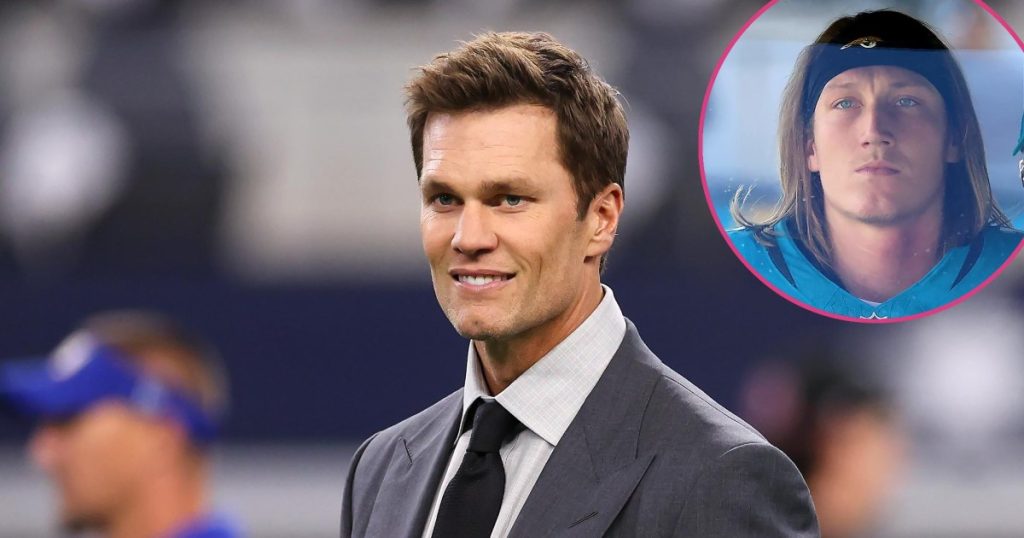Tom Brady recently shared his thoughts on the controversial hit that resulted in a concussion for Jacksonville Jaguars quarterback Trevor Lawrence. Speaking on “The Herd with Colin Cowherd,” Brady expressed his “mixed emotions” regarding the incident that occurred during a game on December 1. He emphasized that quarterbacks need to take responsibility for their own safety, particularly when they decide to run with the football. According to Brady, the expectation shouldn’t fall solely on defensive players to avoid hitting quarterbacks who are in a vulnerable position, especially during a scramble. He contended that this is not a fair burden on the defense, as it runs counter to the aggressive nature of football where physical play is inherent.
The hit in question was delivered by Houston Texans linebacker Azeez Al-Shaair, who struck Lawrence as the latter was attempting to slide to avoid contact. As a result of this aggressive tackle, Lawrence was carted off the field and subsequently diagnosed with a concussion, leading to Al-Shaair’s three-game suspension. Brady reiterated that while nobody desires to see players get injured, such incidents are a part of the reality of a sport known for its physicality. He remarked on the dual responsibility in football where both the offense and defense play with aggressive intents, highlighting that the self-preservation of quarterbacks is essential, particularly in today’s game where many quarterbacks are more mobile than ever.
Brady reminisced about the evolution of quarterback play, noting how many of today’s quarterbacks, like Josh Allen and Lamar Jackson, often run the ball as a strategy. He acknowledged that this mobility adds an exciting dimension to the game, although he expressed a longing for that skill set during his own playing career. Drawing on a personal experience from 2001, Brady recounted a moment where he was similarly hit after sliding late. He shared how his teammates cautioned him to be more aware of the urgency and potential dangers surrounding him when outside the pocket. Such memories have clearly influenced his perspective on quarterback safety and the responsibilities that come with it.
The former NFL star characterized the hit on Lawrence as a significant learning moment for himself during his career. He understood that when out of the pocket, the game’s pace accelerates, and the risk of injury increases. He conveyed that quarterbacks must adapt their play to mitigate danger during these exposed moments. This sentiment reflects a broader warning to aspiring and current quarterbacks about the importance of self-protection in the high-speed environment of the NFL. Brady’s experiences and insights underline the need for an evolving understanding of quarterback dynamics as football continues to develop.
After the game, Lawrence took to social media to reassure fans about his recovery. He expressed gratitude to those who reached out and prayed for him, sharing that he felt better while at home. Unfortunately, following further evaluation, Lawrence was placed on injured reserve, which is likely to end his season prematurely. This situation serves as a sobering reminder of the physical toll that football can take on players, particularly quarterbacks who often find themselves in precarious situations.
In summary, Tom Brady’s remarks reflect a complex interplay between quarterback mobility and the physical nature of defensive play in football. His insights touch on the importance of self-care among quarterbacks and the often-blurred lines between aggression and danger in the sport. As Lawrence navigates his recovery, the wider implications of Brady’s perspective resonate with players, coaches, and fans alike, prompting discussions about safety, responsibility, and the evolving nature of the game as it moves forward in an era of increased athleticism and competitiveness.

